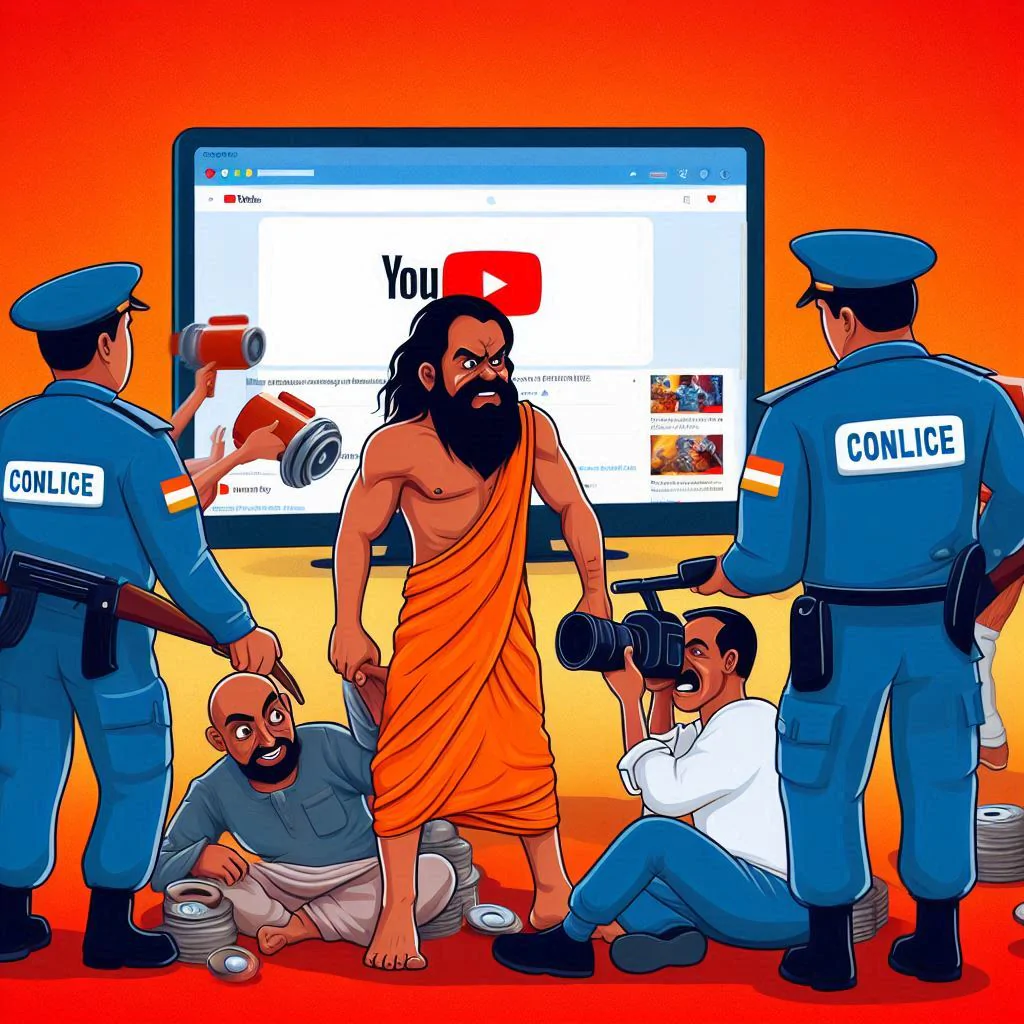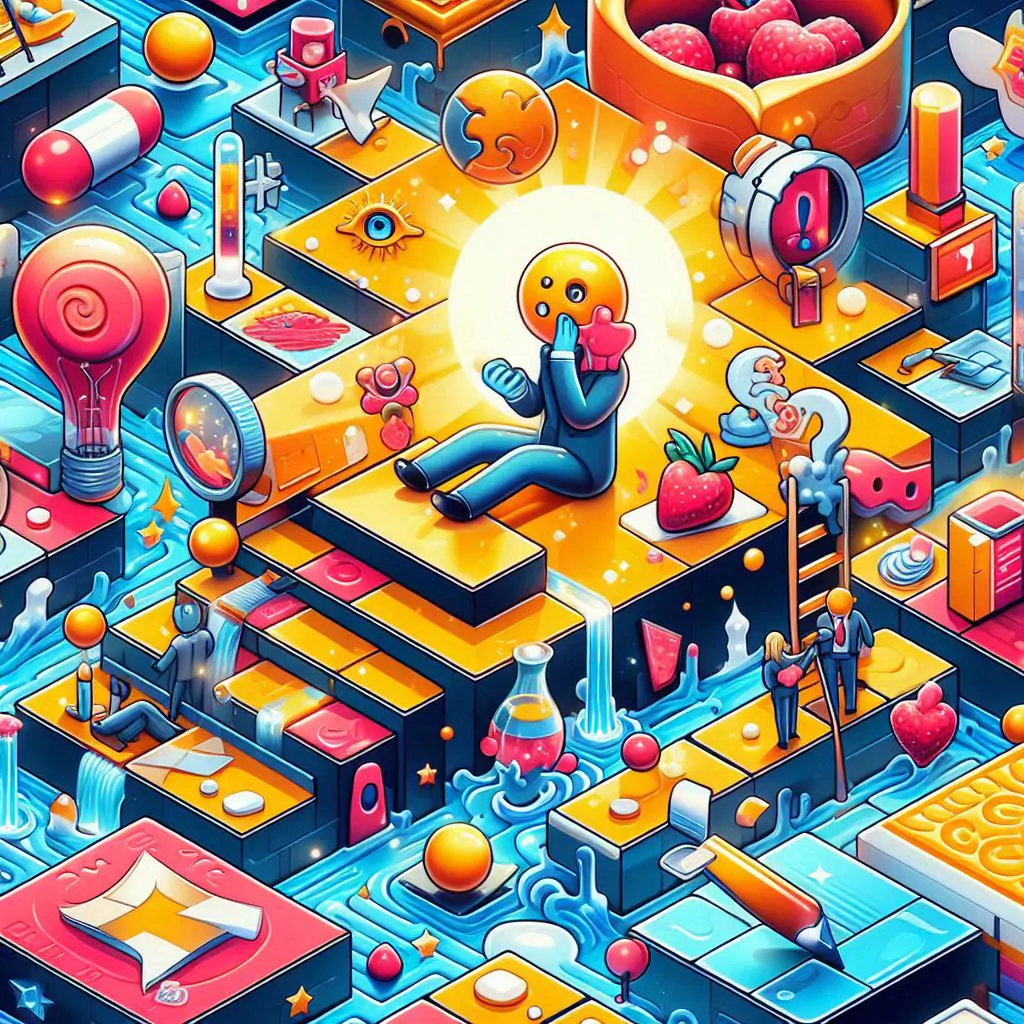Last Updated on August 2, 2024 12:15 am
Online Controversies in 2024: Do We Gain Anything From the Drama?

We’re all drawn to drama from time to time. It’s like we can’t look away from the car crash that is other people’s personal lives playing out online for all to see. But here’s the thing: those online controversies that blow up our social feeds don’t do much for our mental health or bring more understanding into the world. All that negativity and outrage drags us down. In this post, we’ll explore the hollow entertainment controversies provide, their downsides, and why we’re often better off tuning them out. There are more positive ways to spend our precious time and energy.
The Rise of Online Controversies in 2024
2024 was the year influencer culture hit a tipping point. We witnessed countless social media personalities imploding spectacularly before our very eyes. From messy public breakups and feuds, to scandals over problematic old tweets – the cringe was endless. It seemed like every week a new controversy was trending and filling our feeds with piping hot drama. We’d huddle around our screens devouring every juicy detail, desperate for the next salacious update. Yeah, we know it was mindless escapism at its worst. But hey, we’re only human – who doesn’t love a little trainwreck entertainment?
Of course, some of these blowups had more serious consequences than just giving us something to gossip about. The rise of cancel culture in the online space led to many celebs and brands being “canceled” over missteps – both real and imagined. While calling out truly problematic behavior is important, the pitchforks came out way too quickly at times. One wrong move and the internet mobs would descend, making careers and reputations implode overnight. It made for great rubbernecking, but also showed the toxicity that can breed in our digital echo chambers.
Let’s be real – most of us got way too invested in these online feuds and dramas in 2024. We’d spend hours obsessively scrolling and sharing the latest hot takes and memes about whatever controversy was blowing up that week. It gave us that delicious hit of self-righteous outrage that’s become so addictive in this age of polarization. But did any of it really accomplish anything beyond briefly distracting us from our own lives? Probably not. Maybe next time a scandal kicks off, we’ll be able to step back and ask ourselves what we’re actually getting out of it. Or maybe we’ll just get sucked right back into the vortex – the drama’s just too entertaining…
Why We Can’t Look Away From YouTube and Instagram Drama
We’re hooked on watching all the juicy drama unfold online – from celebrity feuds to influencer scandals. Admit it, there’s a twisted kind of satisfaction in seeing people’s lives implode before our eyes. It’s like a modern-day soap opera playing out in real-time. Part of the allure is the feeling of being “in the know” about all the latest tea. Discussing and dissecting every dramatic detail with friends gives us a sense of social validation. We relish being armchair commentators on other people’s messy lives. Let’s face it, our own lives can be pretty mundane at times. Living vicariously through the chaos and controversy of others provides an adrenaline-fueled escape. When everything is going haywire for our favourite YouTubers, we feel like our problems pale in comparison. There’s an undeniable morbid curiosity that draws us in too. We’re weirdly fascinated by watching public figures crumble under pressure. It’s like driving past a multi-car pileup – you can’t help but rubberneck as you pass the wreckage.
Once you get sucked into the vortex of a particular drama cyclone, it’s nearly impossible to look away. The twists, turns and cliffhangers keep us frantically hitting refresh, desperate for the next juicy development. It becomes a bingeable addiction.
The FOMO Effect : With new dramas erupting every week, there’s a very real fear of missing out and being left behind on the latest scandals. Keeping up with the controversies is a way to stay culturally relevant in our social circles.
The Downsides of Getting Caught Up in Online Controversies
We’ve all been there – getting sucked into the latest online drama, refreshing feeds obsessively to catch every new development. But at the end of the day, how much of that time was well spent? Online controversies are often little more than echo chambers of outrage, filled with more heat than light.
The hours we devote to dissecting every perceived slight or “cancelling” public figures over missteps could be better utilized pursuing our own creative projects, learning new skills, or fostering real-world connections. Life is short – do we really want to frittered it away fixating on digital beefs?

Constant immersion in the toxicity of social media squabbles takes a toll on our mental and emotional wellbeing. The vicious personal attacks, the bad-faith arguments, the self-righteous grandstanding – none of it is conducive to healthy dialogue or mutual understanding. If anything, these endless ideological battles only entrench our prejudices and drive us further apart into antagonistic camps. We find ourselves unable to engage with nuance or see the humanity in those with whom we disagree. Is that really the kind of society we want to create?
For every minute we spend raging about the latest celebrity faux pas or fandom skirmish, it’s a minute we’re not devoting to substantive issues that truly impact people’s lives – climate change, economic inequality, human rights abuses. These online controversies are often little more than ephemeral distractions, an endless stream of manufactured crises designed to monopolize our attention and engagement.
We’d be better served unplugging from the drama cycles and refocusing our energy on creating positive change in our communities and pushing for systemic reforms. Otherwise, we risk becoming consumed by inconsequential culture war battles as the world burns around us. The reality is, most online controversies amount to little more than sound and fury, soon to be rendered irrelevant by the next outrage cycle. While it’s tempting to get caught up in the fray, the healthier path is to cultivate the wisdom to disengage, recenter our priorities and work towards being a more constructive force for good.
Don’t get us wrong – speaking out against genuine injustices is crucial. Outrage can be a powerful catalyst for positive change when channeled constructively. But the current state of mindless social media pile-ons helps no one. Perhaps we need to take a step back, breathe deeply, and ask ourselves: Is this controversy really worth getting enraged over? Or could that energy be better spent on more meaningful causes that create real, lasting impacts?
Suggested Reading : India’s YouTube Problem: Misleading Content Out of Control
How Online Controversies Spread Misinformation and Toxicity
We’ve all been there – scrolling through social media when suddenly a controversial topic catches our eye. The outrage is palpable, the takes are hot, and before we know it, we’re drawn into the drama like moths to a flame. But what starts as mindless entertainment can quickly spiral into something far more insidious.
As the controversy gains momentum, misinformation and toxicity spread like wildfire. Unverified “facts” get repeated ad nauseam, while bad-faith actors stoke the flames with inflammatory rhetoric. It’s a vicious cycle powered by our innate human desire for novelty and tribalism.
Let’s face it, controversies are like wildfire in the online world. They spread rapidly, powered by outrage and intrigue. As content creators, they have all been tempted by the siren call of controversy, thinking it might boost our visibility and engagement. But the truth is, the allure of controversy is often a mirage. Sure, it might bring a temporary spike in views and comments, but at what cost? The aftermath can be devastating – a tarnished reputation, lost partnerships, and a fractured audience.
Social media algorithms, designed to keep us engaged, inadvertently create echo chambers where dissenting voices are drowned out and our biases are reinforced. We seek out content that aligns with our pre-existing beliefs, surrounding ourselves with like-minded individuals who validate our perspectives. This insularity breeds a dangerous lack of nuance and empathy. Complex issues are reduced to simplistic us-vs-them narratives, and those who dare to disagree are vilified as “the enemy.” Reasoned discourse gives way to knee-jerk reactions and ad hominem attacks.
Navigating online controversies requires a conscious effort to seek out diverse perspectives, fact-check claims, and approach sensitive topics with open-mindedness and empathy. It’s about recognizing the humanity in those with whom we disagree and finding common ground amidst our differences.
Ultimately, we must ask ourselves: do we gain anything of true value from the drama? Or are we merely feeding a toxic cycle that breeds division, mistrust, and a distorted view of reality? The choice is ours – to be consumers of mindless entertainment or catalysts for positive change.
Who knows this better than Namaste Kohei?
Better Ways to Spend Time Online in 2024
We’ve all been there – mindlessly scrolling through social media feeds, getting drawn into the latest online drama or controversy. But is there a better way to spend our time online in 2024? Absolutely. The internet is a vast repository of knowledge and resources. Why not use it to explore new hobbies or interests? There are countless online courses, tutorials, and communities dedicated to everything from coding to crochet. Learning a new skill not only exercises your brain but can also lead to a sense of accomplishment and personal growth. Who knows, you might even discover a new passion or career path!
Social media can be a double-edged sword – while it can help us stay connected, it can also be a breeding ground for negativity and toxicity. Instead of getting caught up in the latest online feud, why not use social media to cultivate meaningful connections?
Join communities centered around your interests, engage in thoughtful discussions, and build genuine relationships with like-minded individuals. You might just make some lifelong friends in the process.
The internet has democratized access to information and resources, making it easier than ever to make a positive impact on the world. Consider volunteering your time or skills to causes you care about, whether it’s tutoring students online, contributing to open-source projects, or raising awareness for important issues. Not only will you be making a difference, but you’ll also find a sense of purpose and fulfilment that no amount of mindless scrolling can provide.
In the end, it’s up to us to make the most of our time online. By discovering new passions, connecting meaningfully, and giving back to the world, we can truly make the most of the digital age – and maybe even make the world a little bit better in the process.
Choosing Positivity Over Negativity on Social Media
We’re bombarded with an endless stream of outrage and drama on our social media feeds every single day. The constant news cycle churns out one controversy after another, each one more salacious than the last. It’s easy to get sucked into the vortex of negativity, anger, and despair.
Raunak-Editorial Ape
But at what cost? Letting this steady drip of toxicity infiltrate our minds and souls takes a massive toll on our mental health and well-being. The stress, anxiety, and depression that comes from being plugged into the 24/7 rage machine is simply not worth it. That’s why we have to be intentional about curating our social media experience. We get to choose what voices, messages, and energy we let into our personal spaces online. Do we want to surround ourselves with cynicism and conflict? Or would we rather create a feed filled with positivity, inspiration, and light?
The choice is ours. We can log off from the controversies that don’t add value to our lives. We can mute, unfollow, or block accounts that traffic in hate and negativity. We can seek out the good news stories, the uplifting creators, the communities built on compassion. And beyond just consuming positive content, we have the power to be that light for others. We can use our voices and our platforms to speak words of encouragement. To offer hope in dark times. To bring more kindness, empathy and understanding into online spaces. It’s a radical act of self-care and community care to prioritize positivity in the age of infinite internet outrage. But it’s one of the most important choices we can make for our mental health and our society. The more of us who choose light over darkness, the brighter our collective future will be.
FAQs About Online Controversies: Your Top Questions Answered
Why does drama spread so quickly online?
Controversies seem to spread like wildfire these days. Shocking or outrageous content travels fast – people can’t resist clicking to see what the fuss is about. Algorithms prioritize posts with high engagement too, giving viral controversies an extra boost.
Are online dramas always a bad thing?
Not necessarily. Some controversies raise awareness around important issues that deserve more attention. But often they devolve into unproductive outrage, harassment, and misinformation. The negativity outweighs any potential benefits.
Who’s to blame for perpetuating the drama cycle?
We all play a role. Content creators capitalize on juicy controversies for views and engagement. Users gobble it up and fan the flames with hot takes. And platforms do little to stop the spread, since drama = $$$.
How can I avoid getting sucked into online drama?
- Unfollow or mute accounts that thrive on controversy
- Be wary of clickbait headlines and don’t engage with inflammatory posts
- Fact-check claims before sharing or commenting
- Take social media breaks when needed
Is there any upside to following online controversies?
For some, the theatrics provide mindless entertainment – a brief escape from real life. But that fleeting amusement often comes at the cost of increased negativity, stress and misinformation. Is it really worth it?
So maybe the outrage and controversy is more about our need for entertainment than a quest for truth. While we all enjoy some drama and excitement, getting sucked into these endless online battles may just stress us out and divide us further. At the end of the day, we have to ask ourselves – what do we really gain from all this? It’s probably better for our mental health to focus less on the controversy circus and more on connecting with real people in our lives about things that truly matter. The nonstop drama may be tempting clickbait, but it’s just empty calories. Let’s try to find more meaningful ways to engage with each other and make this world a little better.


